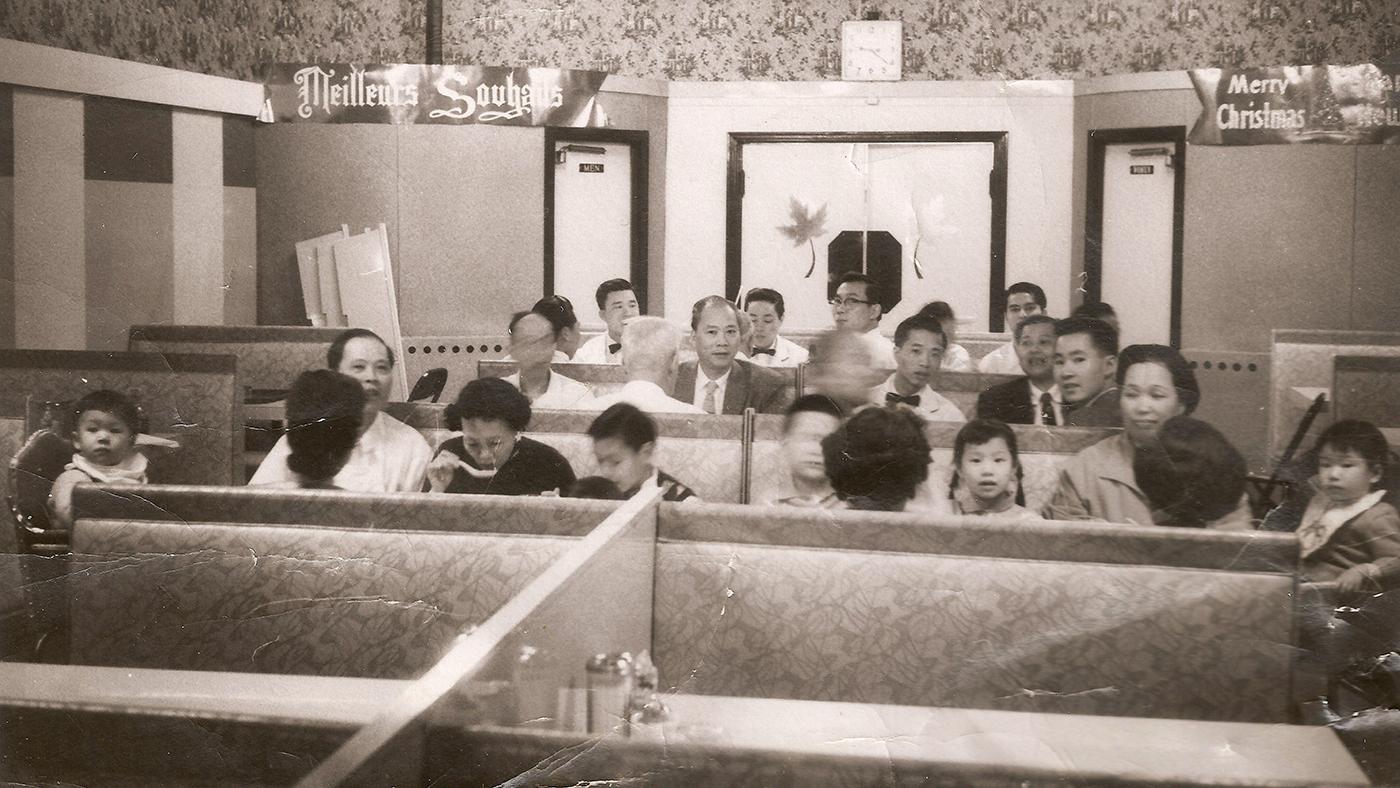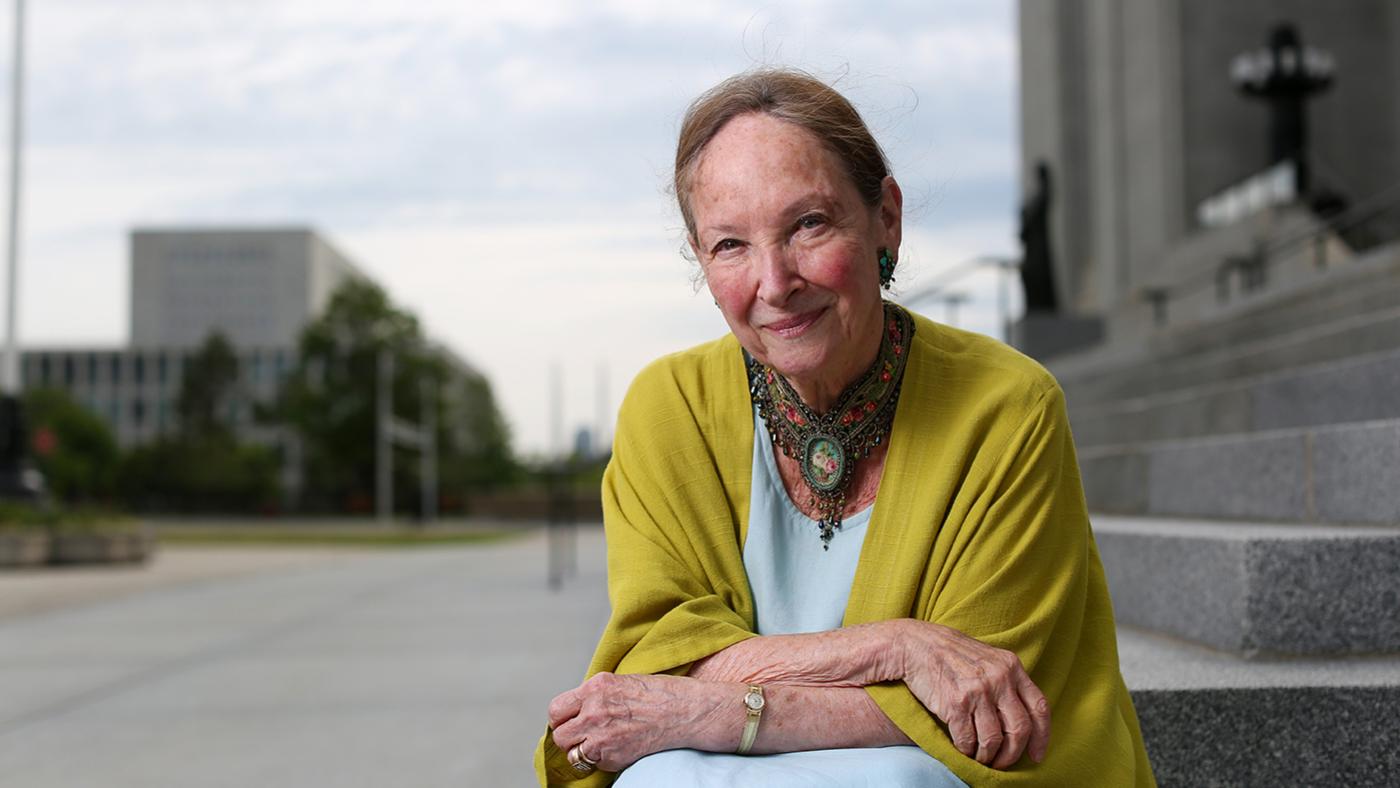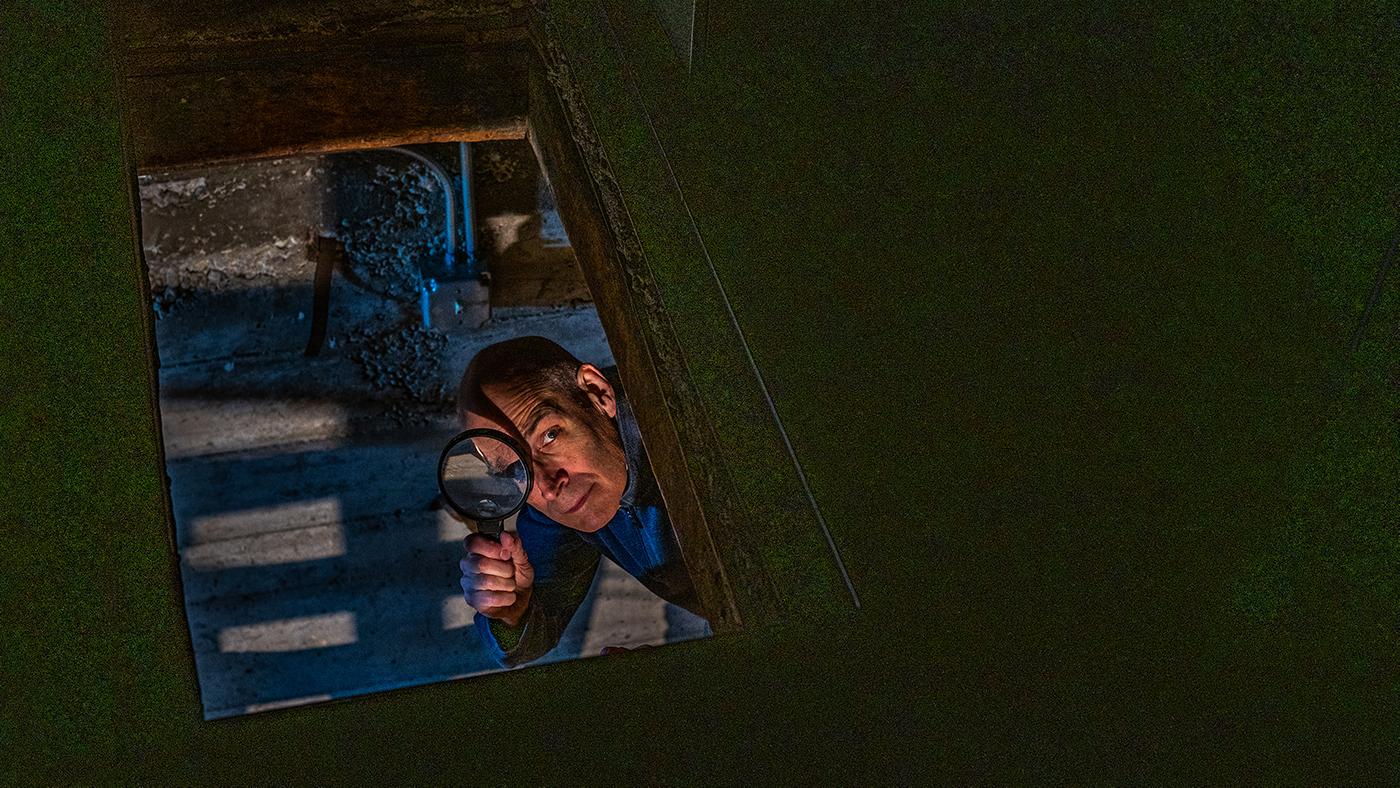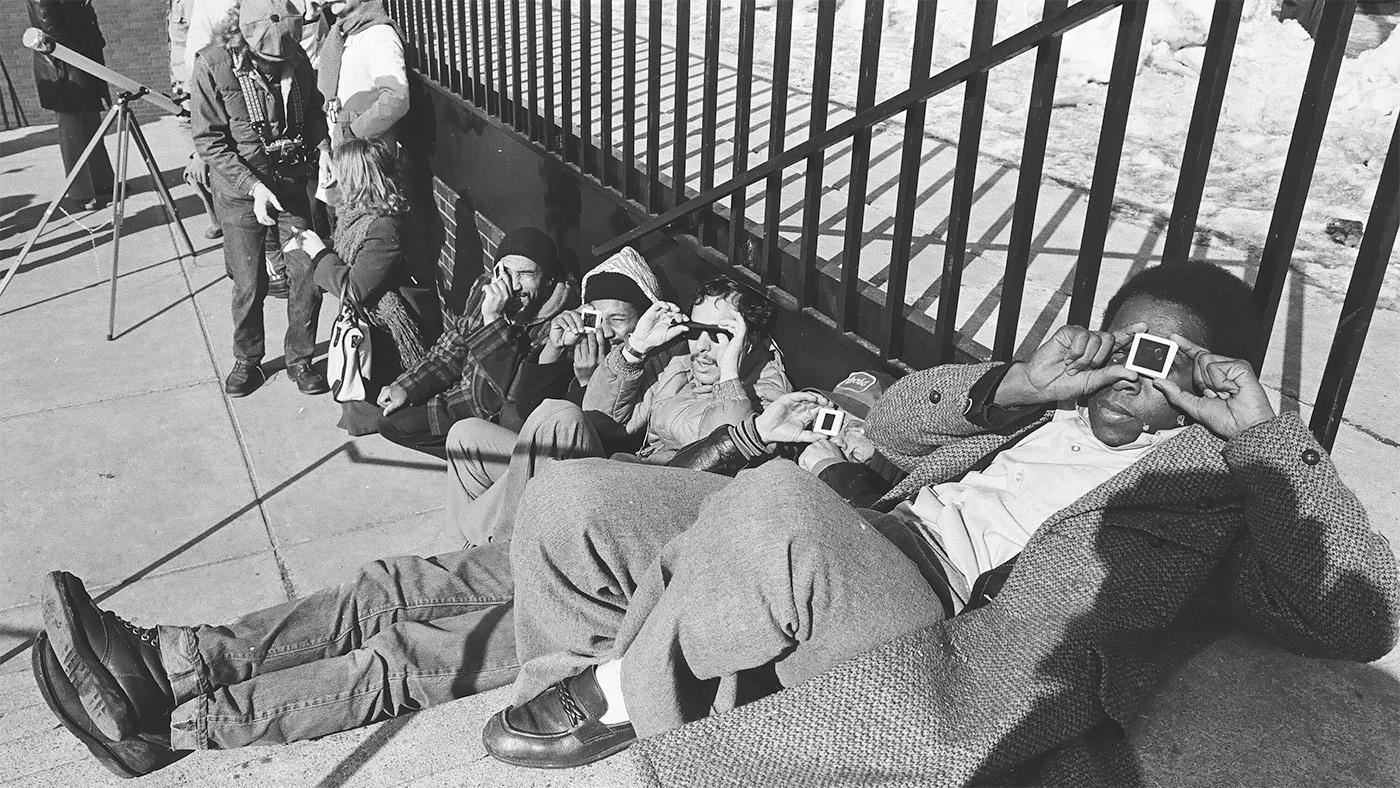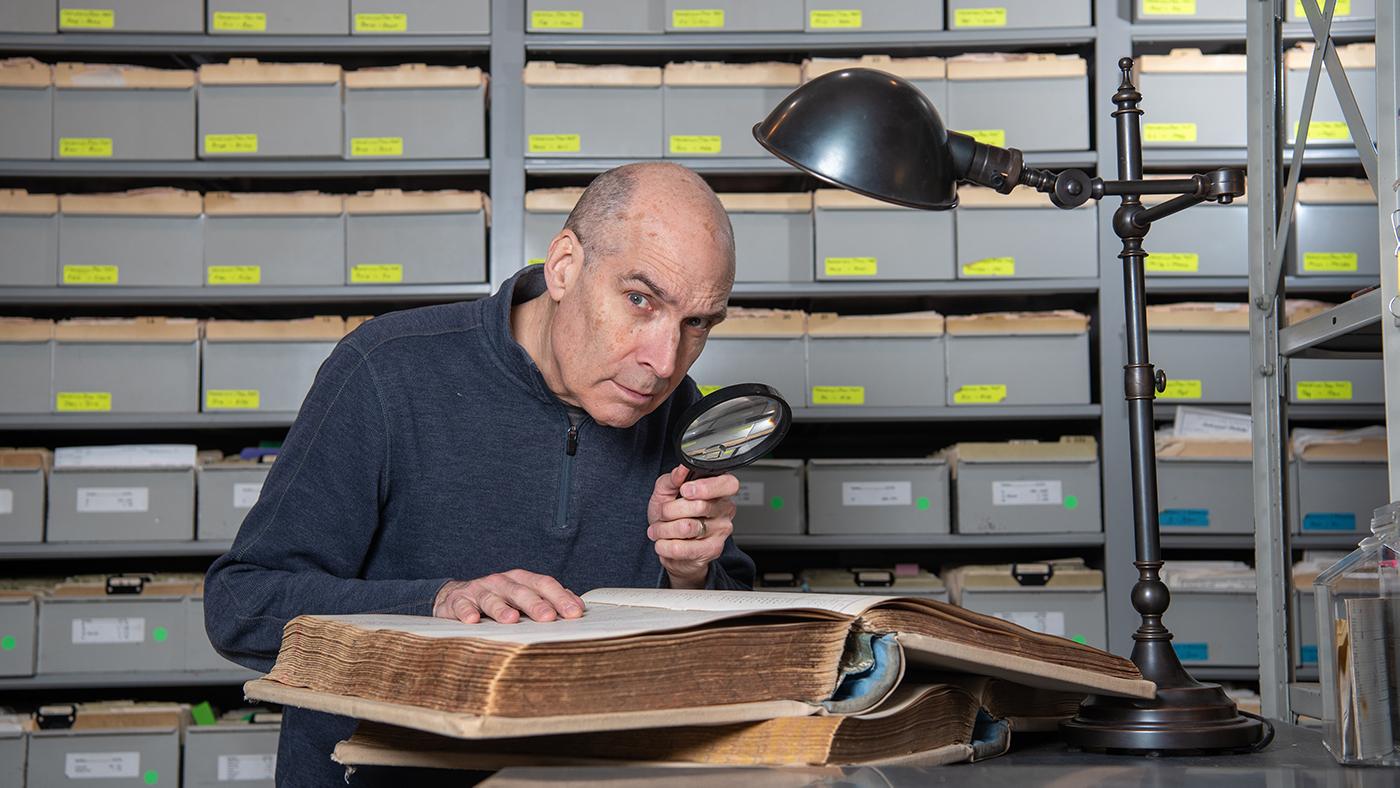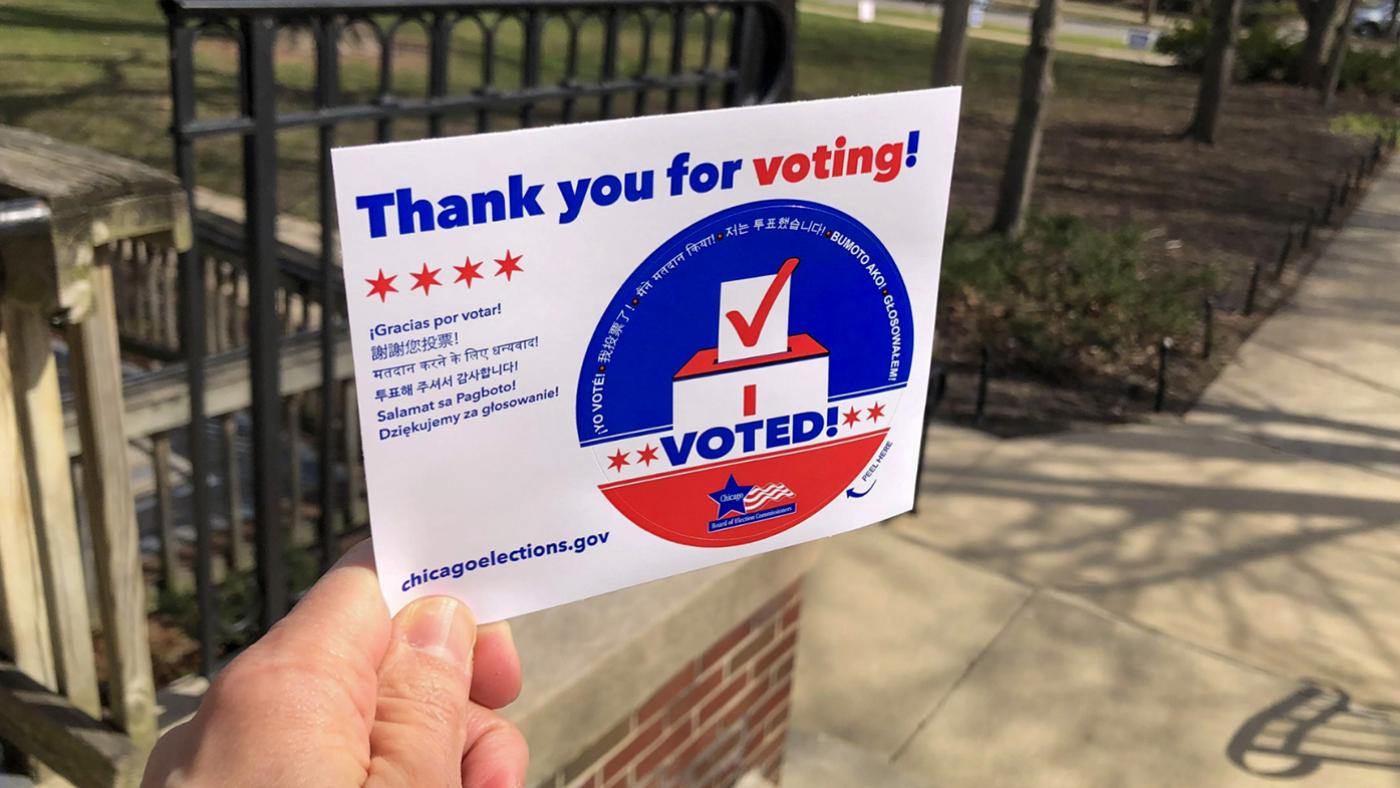A Chicago Native Returns Home to Become the Newest WTTW News Reporter
Daniel Hautzinger
July 21, 2021
!["I've talked about [returning to Chicago] since day one," says the new WTTW News on-air reporter Joanna Hernandez Joanna Hernandez on the set of 'Chicago Tonight'](/sites/default/files/styles/post_featured/public/images/2021/07/21/joanna%20hernandez%20studio.jpeg?itok=DOLPCK-Z)
Joanna Hernandez may have lived in New York City for the past five years, but when she returned to Chicago to become an on-air reporter for WTTW News, she ran into a friend while reporting her very first story for Chicago Tonight. “I went to [Plant Shop Chicago] and interviewed the owner,” she recalls. “I didn’t realize he was a friend that I had in high school! That’s a feeling that I’ve missed being away from home.”
And Chicago is definitely Hernandez’s home. She grew up in Rogers Park on the North Side of the city and attended Mather High School, not too far from WTTW’s studios, and Columbia College downtown. She loves deep dish pizza from Pequod’s and jibaritos in Humboldt Park. Her family would spend Sundays going to Navy Pier, the discount mall in Little Village, or other destinations throughout the city.
“It’s this sense of pride and happiness,” she says about returning to work as a reporter in her native city. “I’m just really excited to get to know all the people again. Now I get to talk about the place I grew up in!”
Hernandez worked as a journalist in New York City for the past five years, most recently as a morning reporter and assignment editor for a news station in the Bronx, and as a freelancer at Univision in New Jersey. She had applied to a job in New York on a whim. “I was like, ‘You know what? I have nothing to lose,’” she remembers. “So I just drove there. I had never been to New York,” she says, laughing.
For the past two years, she woke up at 2:00 in the morning in order to be out on the street breaking news and chasing stories. During much of that time, she filed stories out of her car because of restrictions on who could be in the office due to the COVID-19 pandemic. “I was at that first testing site, I was out talking to people,” she says. “I think I was too caught up in it to be afraid.” She has managed to avoid contracting COVID.
Even while working in New York, she still maintained a love for Chicago—and a desire to eventually return. “Any opportunity that I got to talk on air about Chicago, they would let me, because they knew I was passionate,” she says of her previous job. “And they were super supportive when I was ready to come back home. I’ve talked about it since day one.”
Hernandez became a journalist in part on the suggestion of her mother. “Since I was very little, I would get a video camera and make my own shows with my cousins,” she says. “Every time we had a family gathering, I would be the host and they would be my subjects. I guess I didn’t piece it together at the time, but my mom was like, ‘Why don’t you do that? You’ve been doing it since you were little.’”
So she studied journalism at Columbia, although at one point she nearly changed career paths. “My parents migrated here, so the language barrier was a little bit of an obstacle growing up,” she says. “During my high school and college career, there were people who would not be so nice, or kind of convince me not to pursue journalism. At one point I listened—I dropped out of Columbia College and I was pursuing psychology. But I didn’t enjoy it, so I went back to Columbia, and I finished there. I kept going at it. I kept having that thought that I could do it, and now I’m here.”
In New York, Hernandez began to realize the value of her voice as a queer Latina reporter, able to talk to Spanish-speaking communities in their own language. “I realized that people have a true connection with the news when you speak with them in Spanish,” she says. “It’s been a beautiful discovery to figure out my voice, and remember how I helped parents along the way.”
Hernandez is the eldest of four children, and from an early age helped her parents with English. “I remember countless times where I was their voice, at ten years old,” she says. “I remember all the journeys they had to go through, the challenges, things that I knew were wrong. I have realized that, what I did for them, I can also do as a reporter for someone else who doesn’t speak English, and I could use my voice in my stories to help them.”
Her father migrated here at a very young age and now has his own business. “I look up to my dad a lot,” she says. “When I told him [I was coming to work at WTTW], he was like, ‘Phil Ponce! I would watch him all the time!’” He still lives in the house he bought around the time Hernandez was born. She moved in a couple blocks away, and spends as much time as possible with her family; she even recently donated a kidney to one of her brothers.
When she came to WTTW and began looking for stories, she started with her father. “I sat down with him and asked, ‘What are some things that you don’t like about Chicago, or need help with? What do you like about Chicago, or about our neighborhood?’” She’s also eager to be out in the field and rediscover her city, the communities within it, and the stories people want told.
“That’s why I really love journalism,” she says. “Not only because you get to meet so many different people, but because I’m able to give people an opportunity to share their story. I love that other people can sometimes learn from their story, and I hope that it inspires someone else. And I get inspired along the way. Not only can I find my voice, but also give others a voice who don’t have one.”

